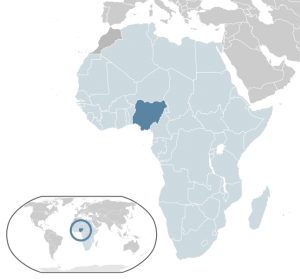Nigeria issues Lassa Fever Public Health Advisory
by News DeskBy NewsDesk @bactiman63
Nigerian health officials have reported 785 confirmed Lassa fever cases in 23 states through November 24, including 160 deaths among the confirmed cases, giving it a 20 percent fatality rate.

This prompted officials to issue an Lassa Fever Public Health Advisory as more cases are reported during the dry season, which began in November.
Authorities remind the public that Lassa fever is spread through:
1. Direct contact with urine, faces, saliva or blood of infected rats.
2. Contact with objects, household items and surfaces or eating food, contaminated with urine, faeces, saliva or blood of infected rats.
3. Person to person transmission by contact with blood, urine, faeces, vomitus, semen, vaginal secretions, breast milk or other body fluids of an infected person.
Signs and symptoms of Lassa fever:
Lassa fever presents initially like any other febrile illness such as malaria. Its symptoms include fever, headache, sore throat, general body weakness, cough, nausea, vomiting, diarrhoea, muscle pains, chest pain, and in severe cases, inexplicable bleeding.
The time between an infection and appearance of symptoms of the disease is 2 to 21 days. Early treatment and diagnosis increases the chances of survival.
People most at risk are:
• People of all age groups who come in contact with the urine, faeces, saliva or blood of rats
• People living in rat infested environments which increases their chances of coming in contact with rats
• People who consume potentially contaminated food stuff especially those left open over-night or dried outside in the open
• People who handle or process rodents for consumption
• People who do not perform hand hygiene when appropriate
• Relatives who care for sick person with Lassa fever at home
• Health care workers
To reduce the risk of Lassa fever, the Nigeria Centre for Disease Control (NCDC) offers the following advice:
- Ensure proper environmental sanitation – i.e. keep your environment clean at all times, block all holes in your house to prevent rats from entry.
- Cover your dustbins and dispose refuse properly. Communities should setup dump sites very far from their homes to reduce the chances of having rodents within homes
- Store foodstuff like rice, garri, beans, corn/maize etc. in covered rat proof containers
- Avoid drying food stuff outside on the floor, roadside where it will be exposed to contamination
- Avoid bush burning which could lead to displacement of rats from bushes to human dwellings
- Eliminate rats in homes and communities by set rat traps and other means
- Practice good personal hygiene by frequent washing hands with soap under running water /or use of hand sanitizers when appropriate
- Visit the nearest health facility if you notice any of the signs and symptoms of Lassa fever as mentioned earlier, avoid self-medication
- Healthcare workers are advised to practice standard precautions at all times: while handling patients and body fluids
- Healthcare workers should maintain a high index of suspicion for Lassa fever i.e. be vigilant and lookout for Lassa fever